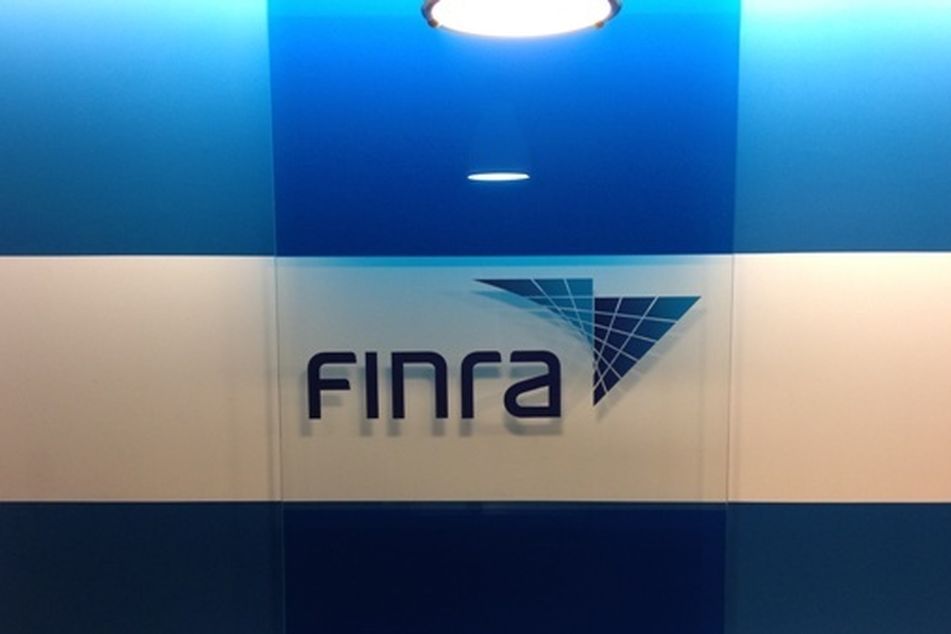Finra plan for bonus disclosure draws sharp reaction

A potential proposal by Finra requiring reps to dislose their recruitment incentive to clients is drawing decidedly mixed reviews. Dan Jamieson reports on the reaction.
The Financial Industry Regulatory Authority Inc.’s plan to propose a rule that would require reps to disclose their recruitment incentives to customers is drawing sharp reaction.
In a notice posted to its site on Wednesday, Finra said it will consider proposing such a rule during its December board meeting.
Finra “can’t manage its own finances. For them to poke their noses into this is nothing short of ludicrous,” said Ron Edde, a recruiter at Millennium Career Advisors. “It gets down to whether a financial package received by an adviser is relative to clients. I don’t think it is,” he said.
Others disagree. “Clients should absolutely know how much the broker is being paid” as they do for RIAs who get paid fees, said Mark Scheffler, founder of Appleton Group Wealth Management LLC. “Often brokers will say they’re jumping because the research is much better, or the management is better, but they never disclose that they’re getting this huge check.”
“The real question is, where do you draw the line” with disclosure, said industry lawyer Marc Dobin, founder of the Dobin Law Group PA.
“Do you [disclose] only if a broker gets a forgivable loan when moving between firms?” Mr. Dobin asked. “Of if they move and they’re on a non-standard payout?”
Similar conflicts exist even when a broker does not move, he said. For example, “should you put on a confirm that your broker is now getting a 32% payout instead of 25%?”
A higher payout would occur if a representative reached a higher production tier, thereby increasing the commission percentage received.
Recruitment deals “could be disclosed in broad strokes, and refined over time,” said Pat Burns, an industry lawyer in Beverly Hills, Calif., who works with independent advisers.
Mr. Burns noted that RIAs already disclose that they get specific benefits for moving to a custodial firm, such as financial help in acquiring technology or research, and brokers could do something similar without getting bogged down by details.
Some feel that disclosure of recruiting deals might make brokers think twice about jumping ship.
“The vast majority of wirehouse brokers [have] great client relationships, but [disclosure] will hurt their ability to retain assets as they move from firm to firm because it just looks icky,” said Jonathan Foster, chief executive of Angeles Wealth Management LLC, a high-end advisory firm.
“If you tell [clients] you got a $20 million bonus, they might say, ‘Great, but we didn’t do that well last year,’” Mr. Foster said.
Recruiter Danny Sarch, founder of Leitner Sarch Consultants Ltd. said defecting brokers should disclose deals to clients because clients will hear about them anyway from reps at the former firm.
RELATED ITEM Sarch: Transparency for bonuses? Bring it on! »
Recruiting incentives have long been a concern for regulators.
Earlier this year, Finra began reviewing conflicts of interest at 14 of the largest brokerage firms, reportedly focusing on broker compensation and recruiting arrangements.
In August 2009, after the brokerage industry ramped up recruiting bonuses in order to target disaffected wirehouse representatives, Securities and Exchange Commission chairman Mary Schapiro sent a letter to chief executives of securities firms warning them to carefully supervise brokers for churning or unsuitable sales, given the financial incentives brokers feel to meet production and asset targets found in recruitment packages.
In 1998, former SEC chairman Arthur Levitt called for the disclosure of recruitment packages, and in 1999 Finra followed up with a rule proposal that would have required disclosure of accelerated payout arrangements for brokers who change firms.
Finra, then known as the NASD, never acted on the proposal.
The reason the old NASD proposal died was the difficulty in answering “that same question, of where do you draw the line and what … needs to be disclosed,” Mr. Dobin said.
A spokesperson for Finra did not immediately return a request for comment. But
when asked about the regulator’s latest plan to require greater disclosure of incentives, Mr. Levitt replied: “I think that’s great.” The former SEC boss said that clients should know what their brokers are getting, and that disclosure would “diminish” the incentives being offered.
But he added, “I think the industry will probably kill it.”
Learn more about reprints and licensing for this article.



